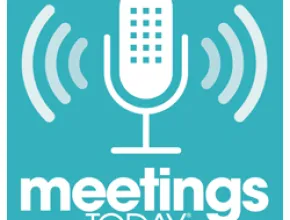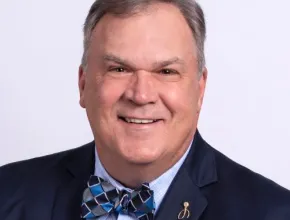State-of-the-Art Attendee Safety at the Georgia World Congress Center Campus
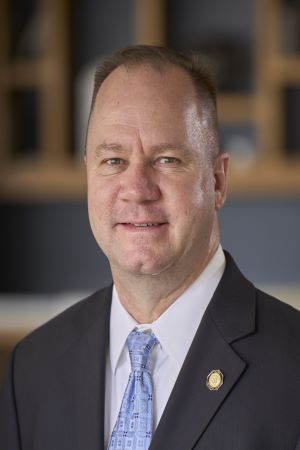
At 220 acres, the Georgia World Congress Center (GWCC) campus is one of the largest such convention offerings in the world, containing the nearly 4 million-square-foot GWCC, Centennial Olympic Park, Mercedes-Benz Stadium, the Georgia Aquarium and the new Signia by Hilton hotel, among other features.
As one can imagine, safety and security considerations at a complex this size are a massive undertaking. One of the leaders in the effort of keeping the GWCC secure during massive, high-profile events such as the Super Bowl and conventions with tens of thousands of attendees is Mark Vincent, emergency preparedness manager for the Georgia World Congress Center Authority (GWCCA).
[Related podcast: Big Things Are Afoot on the Georgia World Congress Center Campus...and Beyond]
Vincent, who was appointed the GWCCA’s first emergency preparedness manager in 2018 in the lead-up to the 2019 Super Bowl in Mercedes-Benz Stadium, is working his second stint for the GWCCA, having started in 1992, moving to the Georgia Aquarium in 2005 and working for Georgia Emergency Management Agency/Homeland Security for a decade before returning.
Meetings Today’s Tyler Davidson talked with Vincent about the challenging job of handling security at such a large complex as well as tapped his expertise for tips for all meeting and event planners that want to increase their preparedness and develop a plan to mitigate threats to the safety of their attendees.
Listen now:
[Related: Sustainability Shines at Georgia World Congress Authority]
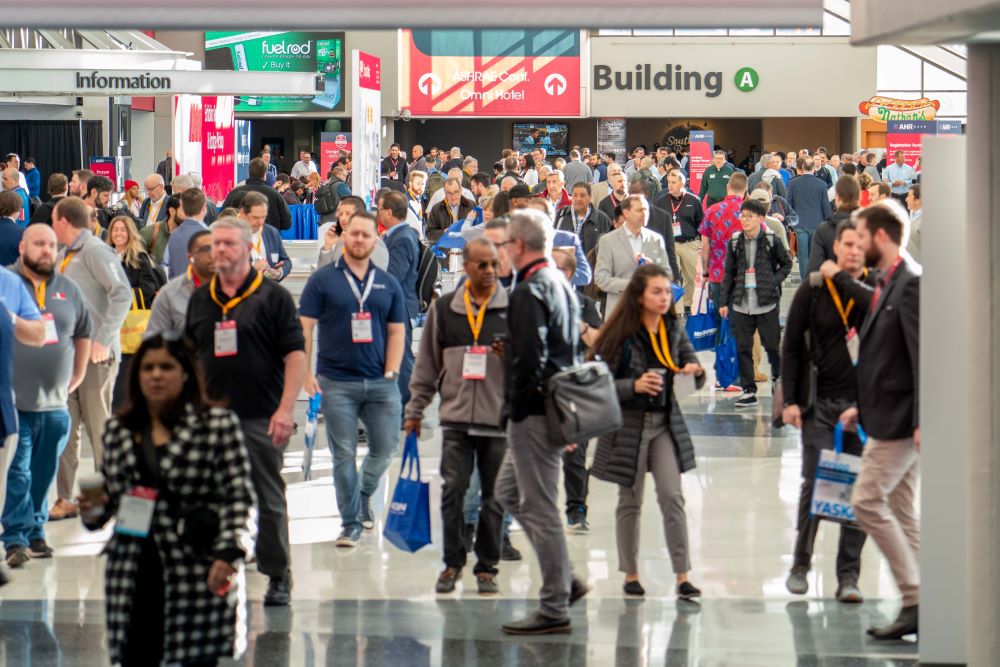
[Related: Signia by Hilton Atlanta Signifies Elevated ATL Convention Campus Offerings]
Transcript:
Editors note: The following transcription was facilitated by AI program Otter.ai and proofed by our editors. Although it is very accurate, there inevitably will be some mistakes, so please consider that when reading. Thank you.
Tyler Davidson
Hello, and welcome to this Meetings Today Podcast. I'm Tyler Davidson, vice president and chief content director for Meetings Today, and joining us today is somebody who’s going to talk about a very critically important topic, I think, for the meetings and conventions industry, and that is emergency preparedness and risk management and security.
We are an industry with thousands of people often meeting in one place. So, I'm very much bullish on keeping that top of mind.
So, joining us today is Mark Vincent, who is the emergency preparedness manager of the Georgia World Congress Center. Thanks for joining us, Mark.
Marc Vincent
Thanks, I appreciate it. Appreciate you having me on your show today.
Tyler Davidson
And I was just there for ASAE, and I was very just impressed by the mammoth size of your campus. I mean, you have the convention center, Mercedes-Benz stadium, Centennial Olympic Park and even a new headquarters hotel, the Signia by Hilton Atlanta.
So, you know, maybe tell us a little bit more about the convention campus, and maybe the unique challenges someone like you faces, and just managing such a vast campus like that.
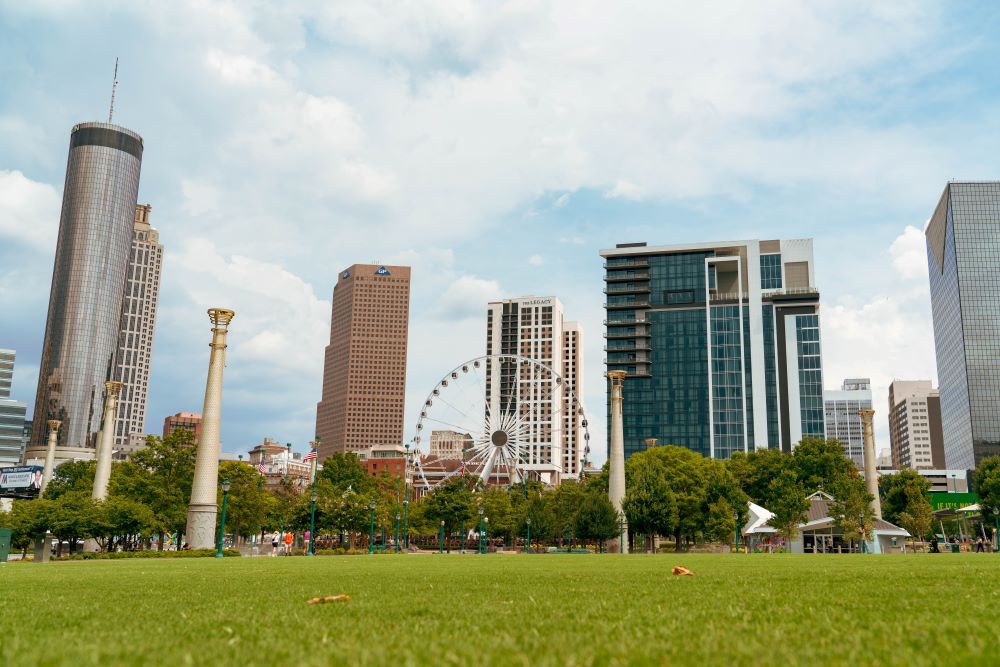
Marc Vincent
Yeah, it's a tremendous campus. 220 acres, right in the heart of downtown Atlanta. And you mentioned all the different venues we have here on the campus. You know, it's always a balancing act between the security and safety of our guests and also being open, welcoming. So, we think that here on the campus, we really walk that line and have got a good balance.
For the safety of our events, we start well beyond the borders of our campus. So, for our larger events, when we hire our off-duty traffic officers, things like that, we teach them what to look for and any types of risk associated—any types of suspicious indicators and vehicles or people. They know exactly what to look for. And as you come on to the campus proper, we even employ our parking attendant, our grounds crew; we teach all of them what to look for, in suspicious indicators.
So, what we've tried to do here at our campus is just really create a culture of awareness where all of our employees are empowered to provide a level of safety up to their training and capability. And then, as you get closer into the buildings and things like that, definitely concentric layers of scrutiny and security you pass through. And for us, being as open and inviting as we can, most of that goes unnoticed by our customers and our clients.
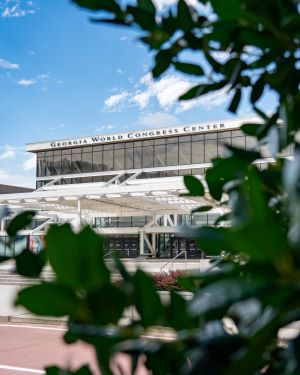
Tyler Davidson
And you're one of the only convention centers that has a full-time, full-service police department on your campus. Am I right about that?
Marc Vincent
Correct. You are correct about that. We are the only convention center in the nation that has a dedicated Georgia World Congress Center Authority, state law enforcement, police department 24/7 always here. We've got our own 911 Communication Center.
And so, yeah, we're the only organization, convention/sports/ entertainment venue in the nation to have that capability.
Tyler Davidson
And I know, Savannah is getting ready to expand their convention center, and you guys are overseeing that. I'm guessing they'll benefit from the robust security operation you have there already in place.
Marc Vincent
Yeah. So, our colleague down there, Jared Whitehead, he's the public safety manager down there and a really talented guy. We are connected via our camera system through Avigilon, our video management system, so we can view all the cameras at the Savannah Convention Center. Of course, we worked with Jared, our senior director Paul Guerrucci was down there just last week, and our security manager was down there just last week, coordinating and talking with them, and of course I've been down there and taught the staff active shooter response and things like that.
So, yeah, really well connected with them and we're really looking forward to that expansion and what new opportunities that'll present for us.
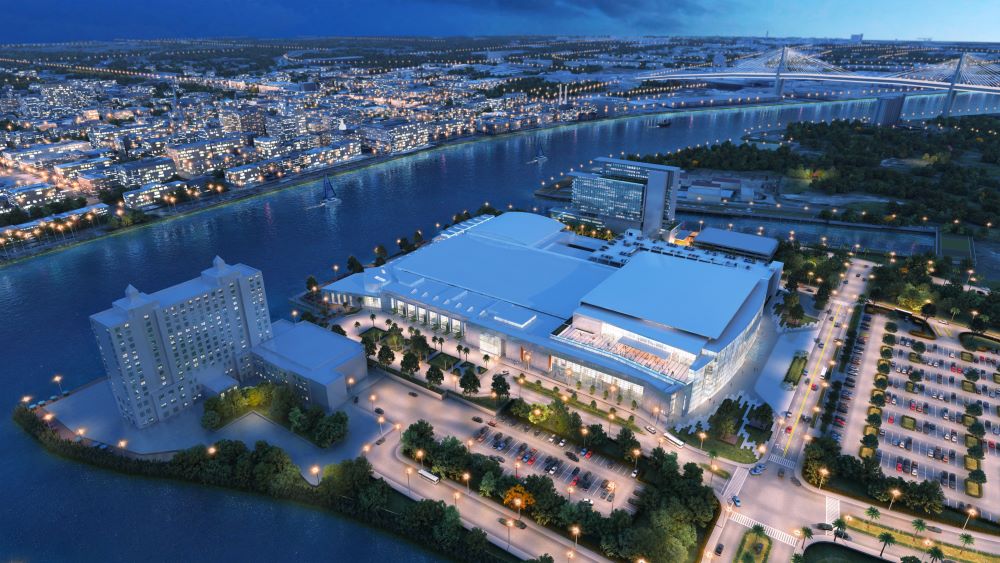
Tyler Davidson
Now, when I was at ASAE, I interviewed a few people about risk management; it's a very big topic, of course, as it should be in our industry. But just covering this industry for so long, we went through the pandemic, everything pretty much shut down everywhere. Before that risk management, things like active-shooter security, was really top of mind, and it seems like it's just my gut feeling those issues aren't as prominent anymore, and they should be.
What's your kind of gut feeling on that? And are meeting planners in organizations still vigilant enough about security post-pandemic?
Marc Vincent
Well, I actually was as a speaker on that very topic at ASAE. And me and Stuart Ruff-Lyons and Gary [LaBranche] with RISKWORLD, we were all on a panel discussion.
[Related podcast: Let's Put Events Risk Management Back on the Front Burner]
Tyler Davidson
And I was in the audience for that, actually.
Marc Vincent
So, it's so certainly, you know, it may be fading a little bit, but you know, most meeting planners that I speak with, and I deal with, and all the clients that come through this building…I can tell a definite uptick in the interest in keeping their patrons safe, They come to Atlanta, and specifically to the convention center.
So, we give kind of command performances for almost every client that comes in the building now on what we do here on the campus, and then beyond our borders, how we partner with the Atlanta Police Department and our other law enforcement intelligence partners to keep the keep every convention or every sports event that comes here to our campus, how we keep it safe.
Tyler Davidson
And what should a meeting planner ask your security team at a major facility such as yours?
Marc Vincent
Well, I would, if I was a meeting planner—and I kind of view things through a different lens than most people, based on my experience and just life lessons—but certainly, as in terms of security and safety, that's got to be your top priority. So, I would look at the technology platforms on the campus, your ability to connect with people on the campus during an emergency or disaster, and how well that messaging can go out how well, if the client has some messaging that they want to push out, that's an emergency, like we did for a RISKWORLD.
We had an active shooter two and a half miles away; an active shooter event that happened and didn't impact our campus at all. But we certainly went into a very protective mode and worked closely with the client and got out emergency messaging and transmitted that on all of our digital signage throughout the campus. We were able to quickly amplify the messaging that they wanted to put out. Of course, we have technology here on our campus, pre-scripted messaging for virtually any type of serious incident that could happen in proximity or on our campus. We have that pre-script and we've got a plan in place.
It's almost like a football coach, “Hey, let's run this play if this happens, or let's do this.” We've got all that in place already.
And if I was a meeting planner, I would want that level of comfort knowing that the convention center has plans in place, not only a plan, but they actually train their people on that plan. They exercise. So, we do all of that, and it's annually—we do multiple exercises, functional exercises, drills. We just had a functional active shooter force-on-force response exercise where our law enforcement team took on an active shooter—bad guy—and we used simulated ammunition and guns and things like that.
We also have leveraged our technology, our platforms. We have a gunshot detection system that's integrated with our camera system. So, you know, Tyler, I don't know if you've heard but, you know, during most of active shooter events, there is a lot of miscommunication or uncertainty about where the active shooter is actually taking place. With our systems here on campus, our gunshot detection, which is integrated with our camera system, it takes that uncertainty out of that type of incident and we can quickly identify the location of the shooter and track that shooter throughout this 220-acre campus and get law enforcement resources there right away.
[Related: 10 Risk Management Tips for the In-Person Meetings Ramp-Up ]
Tyler Davidson
And, you know, I guess we kind of covered how planners should interact or ask questions of the team on-site. What should planners inform their attendees about, or just making sure that they're involved in this also, in keeping it top of mind and maybe communicating anything they see?
Marc Vincent
So yeah, during any type of, you know, registration, or, you know, when they're signing up, or as they're putting information out, I would advise all meeting planners to have a section that talks about safety and security. And here at the World Congress Center Authority, we have web-based links where we can we provide to those clients, if anything happens here on this campus, they have that web link embedded, and you can click on that link and it provides resources and what to do during any—I won't say any—but any conceivable incident that could happen here on our campus. It gives really clear instructions to their attendees on what to do.
Tyler Davidson
And your job. I mean—I know covering this industry for so long—there are certain meetings or events that maybe are more controversial than others, that are maybe, you know, politically, one side or the other has an issue with a group that may be meeting, and I'm guessing those clients are already pretty well versed in security measures, But, what is it like working at an event where there could be a higher degree of risk, you know, protests getting out of hand or a bad actor acting out?
Marc Vincent
Well, you know, Atlanta has got a long history of peaceful protests and demonstrations, and we encourage that, and we have pre-scripted locations for protests.
However, on the opposite hand, if it does get out of hand and goes beyond the peaceful side, we have plans in place—we are a state government entity. And, you know, we do a lot for the city of Atlanta. And since, I would say, the 1996 Summer Olympic Games, we have collaborated very well on the state, local, federal level and private sector to really engage any type of political event that could happen here, and make really solid plans.
We look for contingencies if protests do get out of hand, what we are going to do. We work with our local partners to determine the types of risks that may be involved. Our intelligence partners, not only local with Atlanta police, Homeland Security, but also GBR. Their fusion center, which is called GSAC, the Georgia Information Sharing and Analysis Center—we work with them all the time. They do social media monitoring for us if we have any type of risk or threat that's associated with a particular event. They do us a special event threat assessment and we work with them on that.
And then of course, if it's a certain level of threat, our federal partners with the FBI get involved, and we host them over here on our campus all the time. So, again, all really strong partnerships.
And we've had that for years and years. The guys that I used to work with when I was a rookie, and coming on, well, we've all grown up together and now we are all in leadership positions in our various organizations and have known each other for years. We work with each other, we break bread together, we know each other's families, and that really means a lot in keeping our campus safe.
Tyler Davidson
And you are talking about being a rookie. I mean, you joined the authority in ’92, so you're far from those days…
Marc Vincent
And then worked for Georgia Emergency Management/Homeland Security Agency, and then in 2017, I rejoined the Authority and then the Super Bowl happened in 2019—you know, like maybe half a million people multiple events throughout town.
Tyler Davidson
What was that experience like?
Marc Vincent
So, it was a great experience, and luckily I had worked a couple of Super Bowls on this campus before then but it’s really impressive on how really the partnership with all of our local partners—federal, state partners, it's a big team effort. And we utilize a system of public safety management called the Incident Command System. And so, we set up an area command over Atlanta, the Atlanta police joined the operation center, and we had a liaison over there. But there were actually 13 separate command locations, our campus being one of them. And we would report up each day to Area Command and let them know our progress and our goals, objectives, any issues.
So, yeah, just a really solid, well-planned event. We started that planning effort for Super Bowl about two and a half years out. So, really well planned, well executed. The NFL told us and—you know, they may tell everybody this—but they said this is absolutely the safest and best Super Bowl that they had ever had.
Tyler Davidson
Well, thanks for joining us today, Marc, and thank you for what you do and keeping everyone safe. Is there any message you would like to leave with planners of meetings and events?
Marc Vincent
Well, I would like to tell him this. And I always plug this organization because, you know, not just because I work here, but I truly believe that Atlanta—the relationship we have with Atlanta and the technology platforms and initiatives that we have here on our campus—make us one of the safest venues in the nation. And I'm wholeheartedly behind that. And I will put up our statistics against any other large convention center in the nation on safety and initiatives that we have here. And the way that we in the public safety realm create compelling guest experiences to keep our community safe, and we never sleep.
We are always working to keep our campus safe and keep our meetings and venues and different types of events safe.
Tyler Davidson
And it's quite an impressive job you do there. So, thank you, Mark.
Marc Vincent
Thank you, Tyler. We appreciate you.
Tyler Davidson
And that was Marc Vincent. He is the emergency preparedness manager, for the Georgia World Congress Center. I'm Tyler Davidson, vice president and chief content director for Meetings Today.
Thank you for joining us for this Meetings Today Podcast. And if you're interested in any of the other podcasts we've done, we’ve got a whole host of them over on our website, MeetingsToday.com. Just check out our podcast section.
So, thank you for joining us today, and no matter what you're up to with the rest of it, go out and make it great.
Read next: Atlanta Shows Off Its New Conventions Developments During ASAE Annual




